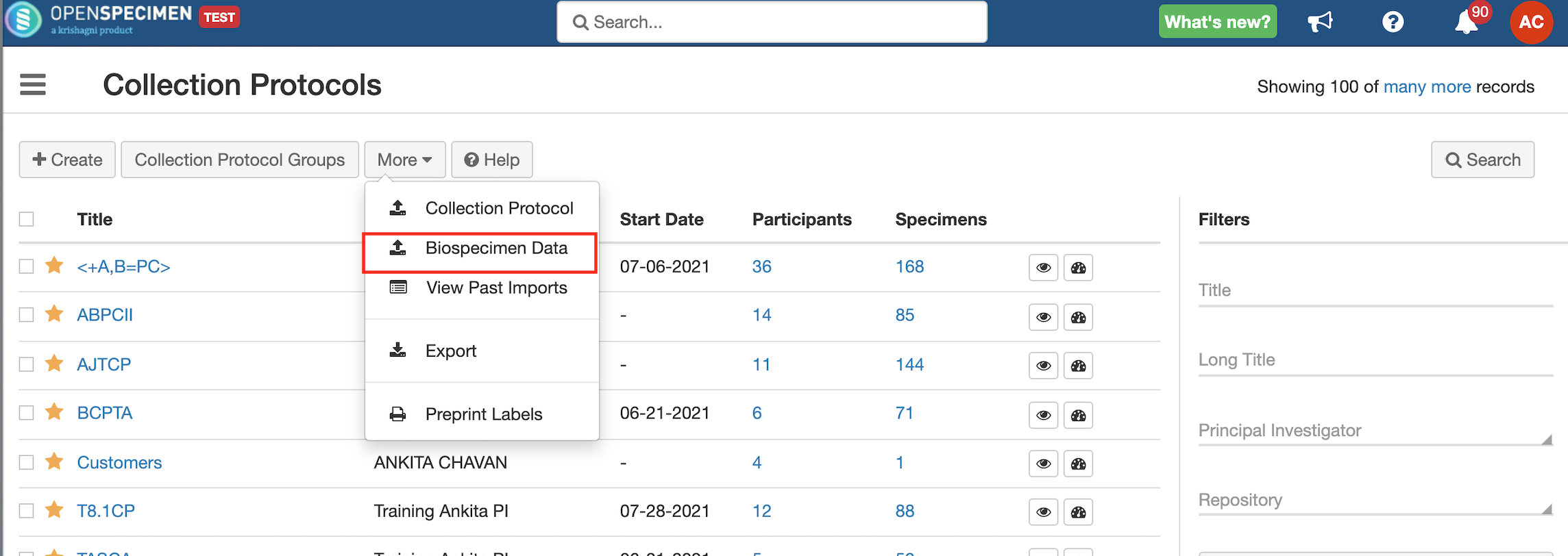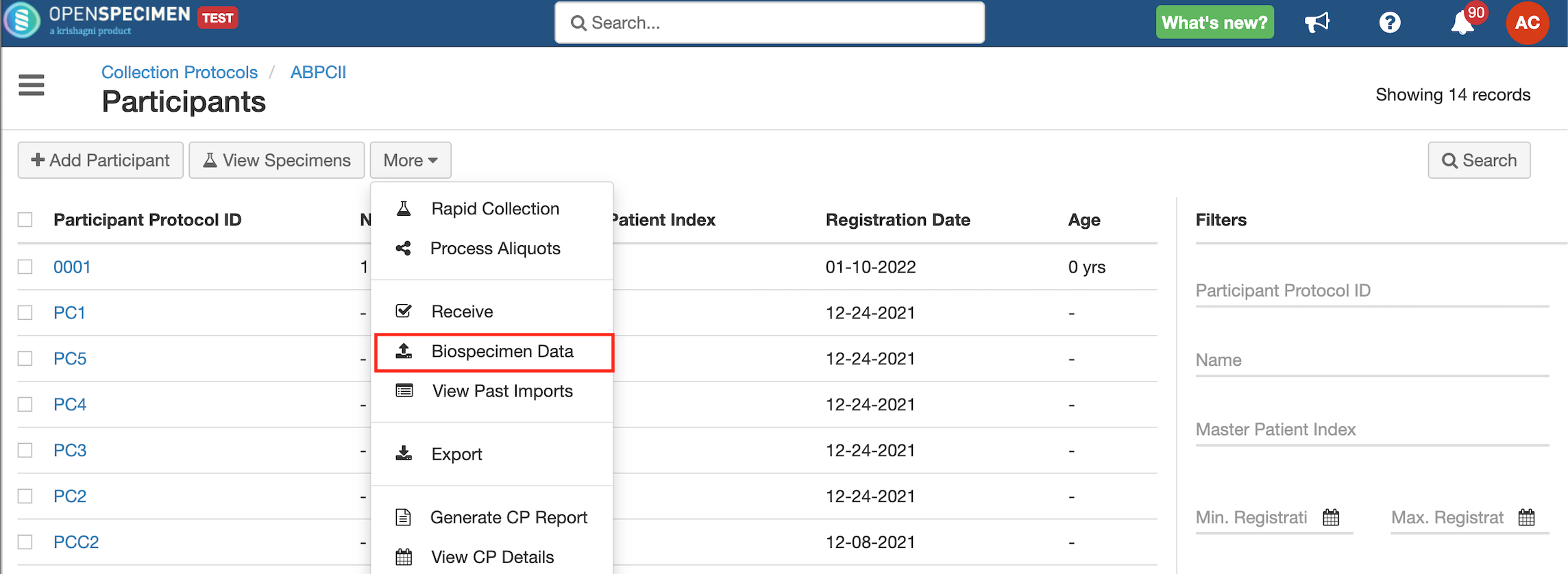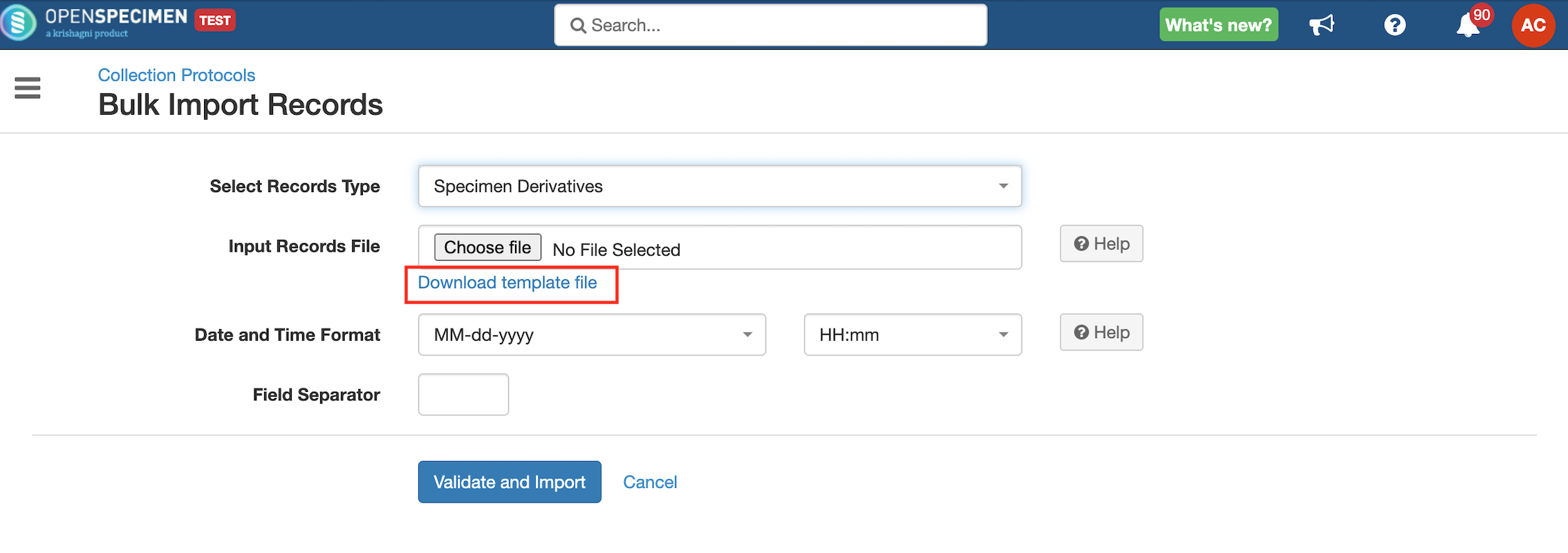/
Specimen Derivative CSV
Got feedback or spotted a mistake?
Leave a comment at the end of this page or email contact@krishagni.com
Specimen Derivative CSV
Steps to Import CSV
Sample CSV
Data Dictionary
Column Name | Datatype | Mandatory? | Description | Permissible Values | Validations |
|---|---|---|---|---|---|
CP Short Title | String | Yes | The collection protocol short title under which specimen is collected | This is mandatory only if specimen labels are not unique across collection protocols. This is a setting users can set in Admin settings. By default, labels are unique across the system. | |
| Parent Specimen Label | String | Yes | Should label of a collected parent within the system | ||
| Specimen Label | String | Depends | Mandatory when the auto label generation is OFF or 'Manual Inputs Allowed For' is selected. | ||
| Barcode | String | No | |||
| Class | String | No |
| If left blank system will add class based on specimen type in the input. | |
| Type | String | Yes | Permissible Values File | Field not applicable to the aliquot as aliquot type would always be same as that of parent | |
| Collection Status | String | No |
| ||
Pathological Status | No |
| |||
| Initial Quantity | Double | No | Default Value: Not Specified | ||
| Available Quantity | Double | No | |||
| Concentration | Double | No | This field applies only to molecular specimens | ||
| Biohazard#1 | String | No | Multiple values can be specified as: Biohazard#1, Biohazard#2, Biohazard#3 and so on |
| Valid value from the list |
| Created On | Date | No | Select the correct date format from UI based on the data in the file | ||
Freeze/Thaw Cycles | Number | No | Freeze/Thaw Cycle of the derivative | ||
Increment Parent Freeze/Thaw Cycles | Number | No | Number by which parent freeze/thaw cycle is to be incremented | ||
| Close Parent | String | No | options- Yes/No or true/false | Parent specimen should be in collected -collection status | |
| Comments | String | No | |||
| Location#Container | String | No | It needs to be specified if the specimen is not virtually located. |
| |
| Location#Row | String | No | Position within the container at which the specimen is to be stored. If left blank, the system will allocate the next available position. | ||
| Location#Column | String | No | |||
Location#Position | Number | No | The single number or linear position labels to identify slots within the container for storing specimen |
, multiple selections available,
Related content
Specimens CSV
Specimens CSV
More like this
Specimen Custom Forms CSV
Specimen Custom Forms CSV
More like this
Create Specimen
Create Specimen
Read with this
Specimen Catalog and Requests
Specimen Catalog and Requests
More like this
Sample Code To Reserve and Unreserve Specimens
Sample Code To Reserve and Unreserve Specimens
More like this
Master Specimen Template
Master Specimen Template
More like this
Got feedback or spotted a mistake?
Leave a comment at the end of this page or email contact@krishagni.com


